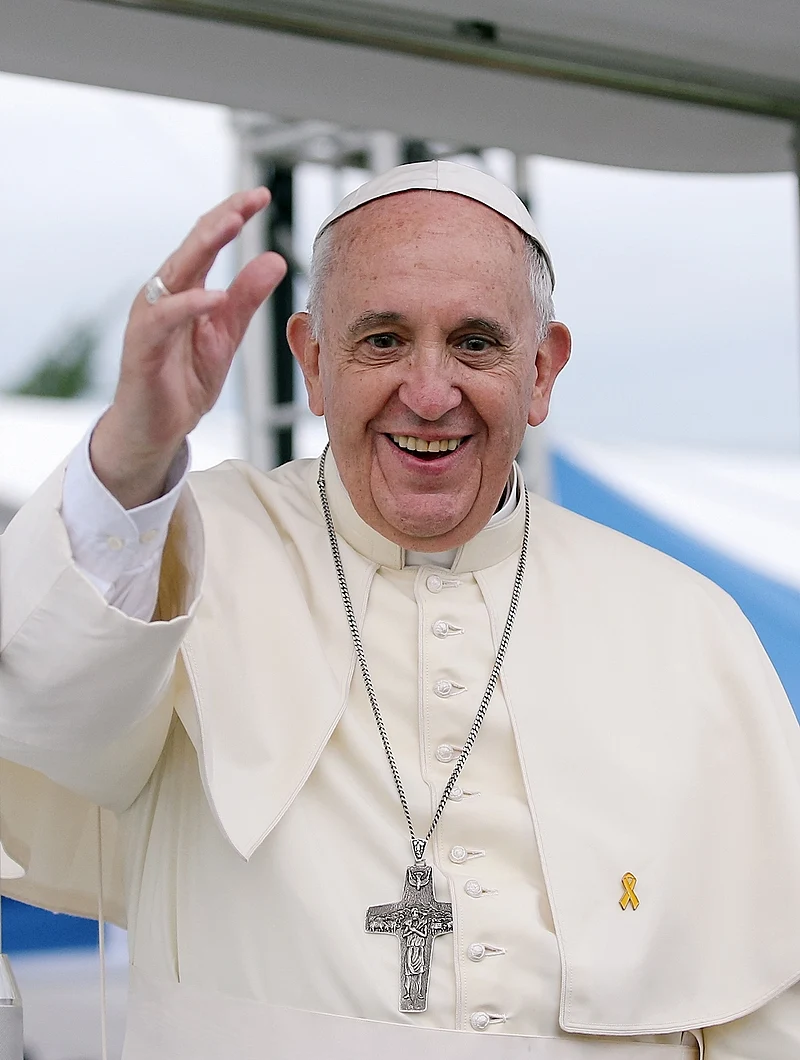By Bianca Sierra

FROM WIKIPEDIA COMMONS
Pope Francis (born Jorge Mario Bergoglio; 17 December 1936 – 21 April 2025) was the head of the Catholic Church and sovereign of the Vatican City State from 2013 until his death. He was the first pope from the Society of Jesus (the Jesuit Order), the first from the Americas, the first from the Southern Hemisphere, and the first born or raised outside of Europe since the 8th-century Syrian pope Gregory III.
Born in Buenos Aires, Argentina, Bergoglio was inspired to join the Jesuits in 1958 after recovering from severe illness. He was ordained a Catholic priest in 1969; from 1973 to 1979, he was the Jesuit provincial superior in Argentina. He became the archbishop of Buenos Aires in 1998 and was created a cardinal in 2001 by Pope John Paul II.
Following the resignation of Pope Benedict XVI on 28 February 2013, a papal conclave elected Bergoglio as his successor on 13 March. He chose Francis as his papal name in honour of Saint Francis of Assisi. Throughout his public life, Francis was noted for his humility, emphasis on God’s mercy, international visibility as pope, concern for the poor, and commitment to interreligious dialogue. He was known for having a less formal approach to the papacy than his predecessors by, for instance, choosing to reside in the Domus Sanctae Marthae (House of St. Martha) guest house rather than in the papal apartments of the Apostolic Palace used by previous popes.
Francis made women full members of dicasteries in the Roman Curia. He maintained that the Catholic Church should be more sympathetic toward LGBTQ people, and stated that although blessings of same-sex unions are not permitted, the LGBTQ individuals can be blessed as long as blessings are not given in a liturgical context. Francis was a critic of unbridled capitalism, consumerism, and overdevelopment; he made action on climate change a leading focus of his papacy. He was widely interpreted as denouncing the death penalty as intrinsically evil, stating that the Catholic Church is committed to its abolition. In international diplomacy, Francis criticized the rise of right-wing populism, called for the decriminalization of homosexuality, helped to restore full diplomatic relations between the United States and Cuba, negotiated a deal with the People’s Republic of China to define how much influence the Communist Party had in appointing Chinese bishops, and supported the cause of refugees. He called protection of migrants a “duty of civilisation” and criticised anti-immigration politics, including those of U.S. President Donald Trump. In 2022, he apologized for the Church‘s role in the “cultural genocide” of the Canadian Indigenous peoples. Francis convened the Synod on Synodality which was described as the culmination of his papacy and the most important event in the Catholic Church since the Second Vatican Council.
Francis died at the age of 88 in the early morning of 21 April 2025, on Easter Monday, after suffering a stroke. In the weeks before his death, he had been making fewer public appearances so that he could be treated for chronic lung disease, including a respiratory crisis and pneumonia. He made his last public appearance the day before, on Easter Sunday.
